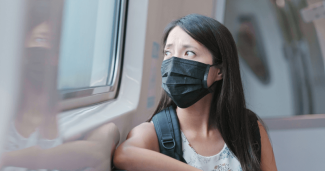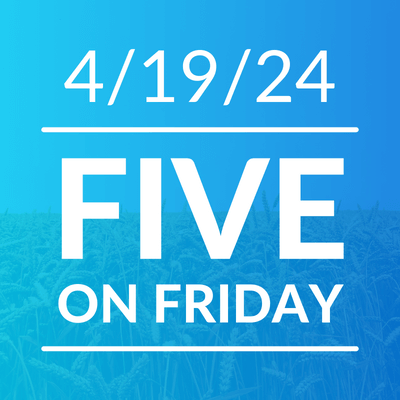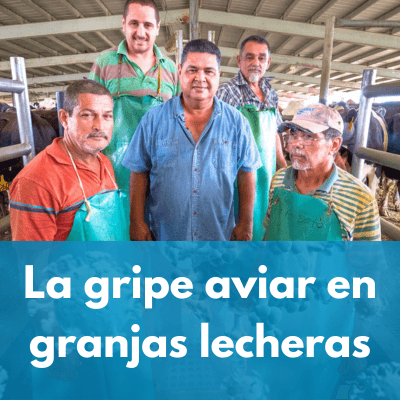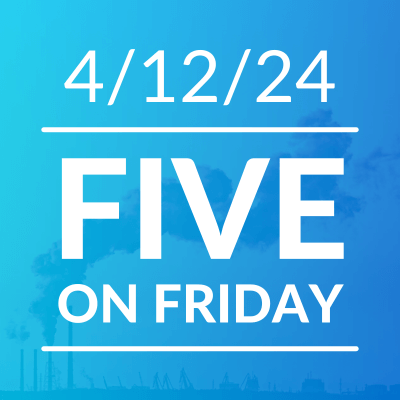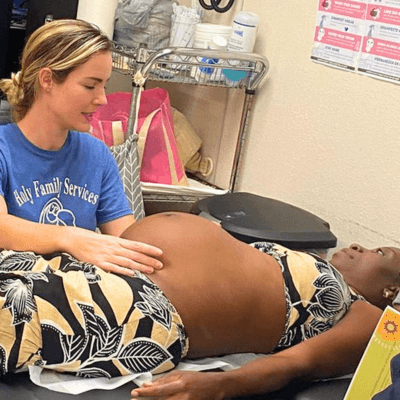Understanding the Impact of Long COVID on Disenfranchised Communities
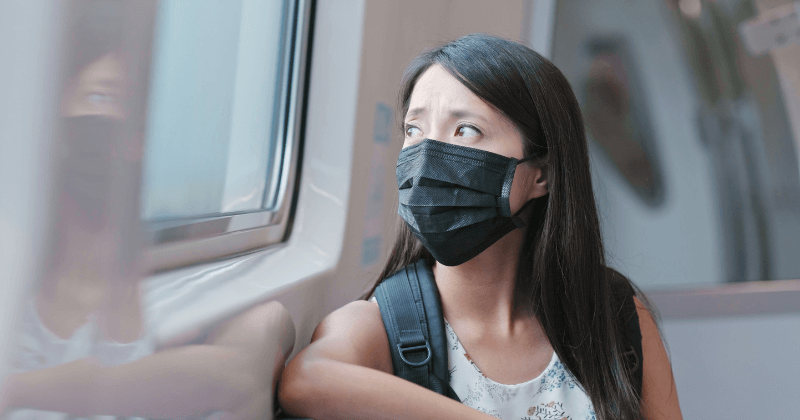
Long COVID’s impact can span across many areas of a sufferer's life, affecting their physical abilities, mental health, work, and interpersonal relationships. Yet for disenfranchised populations, including immigrant, migrant, and refugee populations, long COVID can magnify ongoing barriers caused by pre-existing health inequities. After recovering from acute COVID-19, about one out of five people may get long COVID and other chronic conditions, explained Laszlo Madaras, MD, MPH, MCN’s Chief Medical Officer, in a recent MCN webinar, Caring for the Long COVID Patient. However, since there is no test that can directly diagnose long COVID, Dr. Madaras believes cases often go unreported and undiagnosed. “Long COVID is an ongoing development and our understanding of it is ongoing and changing all the time,” he said.
On the Ground: Concern for Disenfranchised Communities
Hannia Benitez, Hispanic Liaison and Deputy Director for the Lee County office at El Vinculo Hispano, a nonprofit based in North Carolina, has been on the front lines of COVID-19 in her community, and joined Dr. Madaras on the recent webinar to discuss her professional and personal experiences with COVID. For over 27 years, El Vinculo Hispano has been helping Latinx community members, many first- and second-generation immigrants, adjust to life in the US. Many of those they serve have limited formal education and low English proficiency, are essential workers, hold “several jobs to make ends meet,” and are without health insurance, Benitez explained, each of which erects barriers to accessing health care and trusted health information. Since 2020, El Vinculo Hispano has built partnerships with health care providers to ensure community members have access to health education, testing, vaccines, and treatment for COVID-19, despite social, economic, and structural barriers to health care. Benitez notes she is particularly concerned about her community contracting COVID-19 because they are at higher risk for many chronic illnesses which put them in greater danger of severe COVID than other populations. Yet communicating this message is difficult since low rates of routine check-ups within the community result in fewer diagnoses and treatment plans, and leave people unaware of their own increased risk. These and other factors continue to encourage El Vinculo Hispano staff to promote COVID-19 vaccination.
Personal Experience
Benitez’s concern for community members was amplified by her personal experience with COVID-19. In September 2021, in the midst of her community work to promote COVID vaccines, Benitez simultaneously contracted COVID-19 and RSV (Respiratory Syncytial Virus). Benitez was hospitalized but not intubated, which she credits to being fully vaccinated. However, a month after recovering, Benitez suffered from intense fatigue, could not walk 100 yards without having to catch her breath, could not concentrate, had intense brain fog, would routinely have headaches, and had difficulty sleeping at night. Her symptoms affected her ability to work and led to anxiety and depression. Seeking medical care, Benitez sought help from her primary care provider. “I had a really wonderful primary care doctor who said, ‘You know what? Don’t feel bad. I believe you.’” shared Benitez. She was soon referred to a long COVID clinic, where she was referred to speech therapy to assist with brain fog. She was also prescribed albuterol to help her breathing.
Despite treatments and a COVID-19 booster, Benitez contracted COVID-19 again in January of this year. Even with successes, Benitez still struggles to replicate her previous level of work. Her health care providers encourage her to take breaks, voice limitations, and use tools to help with tasks. She has learned new methods to complete old tasks, and to remember critical information for her job. Using techniques such as requesting people to repeat information and repeating information back helps her push past brain fog.
Long COVID’s Impacts
Physical Impacts
Benitez is one of thousands of people with long COVID, and her symptoms are not unique. Acute COVID usually begins and ends within three weeks of the first sign of symptoms, explained Dr. Madaras. However, long COVID can start within a couple of weeks or a couple of months after being infected. While there are still discussions within medical communities about how to categorize long COVID symptoms, Dr. Madaras explains that physical symptoms can include fatigue, breathing difficulties, pain, palpitations, postural orthostatic tachycardia syndrome (POTS), hypotension, headaches, and other symptoms. Those who are ill must also face an increased risk of new diagnoses of long-term illnesses such as diabetes or cardiovascular illnesses. The true long-term physical impact of long COVID is still unknown, but the impact on those in vulnerable communities will be greater. While anyone can get long COVID, Dr. Madaras explained that intense acute COVID symptoms, hospitalization, intubation, the presence of co-morbidities, and being unvaccinated put a person at higher risk.
Mental Health Impacts
Beyond physical symptoms, long COVID symptoms that can impact the mental health of those who are ill include brain fog, fatigue, lack of concentration, executive functioning decline, difficulty with memory, difficulty, depression, and anxiety, all of which can significantly impact family and work life, said Kaethe Weingarten, PhD, Director of MCN’s Witness to Witness, who also presented at the webinar. Around 70% of people with long COVID have some level of decrease in cognitive function, ranging from mild to severe (19%). Long COVID is “confusing and ambiguous” Dr. Weingarten noted. The ambiguity of long COVID itself, and the fact that there are still multiple definitions for the illness, contributes to the mental stress of those who are touched by it. Dr. Weingarten explained that acute COVID victims ask themselves whether they are experiencing a ‘normal’ recovery or if they have long COVID. “People feel absolutely confused at this stage”, she explained, which can lead to great frustration.
Due to limited specialized services, people experiencing long COVID “are often greeted [with] skepticism,” Dr. Weingarten shared, by their health care providers, employers, friends, and family – and even from themselves. Beyond skepticism, blame for becoming ill is another difficulty which “produces a mental health burden” on the ill, she explained. Imposed stress may result in disturbed sleep cycles, anxiety, fear, and trauma, which can result in overuse of analgesic drugs, antidepressant agents, sedatives, and anti-anxiety medications. Those with long COVID must also suffer “self-loss,” which is when they recognize the difference between who they are now and who they were before becoming ill, Dr. Weingarten explained. Yet they must still concern themselves with practical questions such as whether they will be able to provide for themselves and their families. For those with very low incomes and little work flexibility, these questions may be even more burdensome.
Social Impacts
During this uncertain time, family, friends, employers, health care workers, and others are asking questions of their own, said Dr. Weingarten, including questions about finances, access to health insurance, when to take a patient to the ER, and whether the person who is ill will be able to meet interpersonal, work, and family responsibilities. Often, others in the long COVID patient’s household may also be feeling poorly, Dr. Weingarten added, “because they don’t know what to do and they don’t know how to be helpful.” The experiences that health care workers, friends, and family have when caring for an ill person often depends on the type of interactions they have with the person, and can result in a range of reactions, Dr. Weingarten noted, including sympathy, skepticism, blame, fear, and even annoyance. Family and friends of the ill person may suffer from illnesses such as PTSD (if there was an ICU experience during the illness), but may also suffer from “empathic stress reactions,” Dr. Weingarten explained, which may make caretakers feel “overwhelmed, exhausted, and demoralized.”
Clinician Responsibilities
Empathy
Those caring for someone with long COVID can spend time listening, and ensure the person who is ill feels heard and connected with, shared Dr. Weingarten. For clinicians, empathy is important, she stressed. “Listening to your patient, and again, as much as possible saying ‘we will get through this together,’ that’s what instills hope for people,” she said. For Benitez, this empathy was critical. “One of the biggest things that has helped me through this has been the group of health care providers, the professionals, that take a step back and say, ‘I believe you,’ ‘I hear you,’” she recalled. Dr. Madaras warned health care providers that the unavailability of long COVID diagnostic tests poses a risk for patients being dismissed. “We should listen to, document, empathize... we need to have that kind of empathy, even if we don’t have the test,” he asserted.
Advocacy
Beyond empathy, Dr. Madaras stressed that the quality of care given by health care providers can have a critical impact on a patient's future, especially for those in immigrant, migrant, and refugee communities. Illnesses, including long COVID, resulting from or sustained during employment are considered work-related. Clear documentation is key, as documentation may be needed to confirm a disability. Unless symptoms are documented from the start of an acute case, the opportunity to relate long COVID back to the initial illness may be impossible, Dr. Madaras said. “Then there is a problem, and we didn’t do our patient justice,” he added. When health care providers determine there is more than a 50% chance the illness is work-related, they are encouraged to use specific phrases like “more likely than not due to work,” or “but for the work, the condition would not exist,” Dr. Madaras explained. Using undeniable language may impact whether a worker has access to workers’ compensation, including immediate, long-term, and specialty care, when they return to work, prevention at the workplace, and public health surveillance, he added.
For Benitez, the fact that her health care providers took an active role advocating for her within the health system was impactful. “There are so many questions that we have, but we are taking it a visit at a time,” she said. “The health care providers are reaching out to other specialists and saying, ‘Hey, can you try this,’ or, ‘Can you try something else?’ Anything you can do as clinicians to help support the patients that you are seeing, I know it goes a long way to help them in their recovery,” she said.
Talking to patients about getting vaccinated in one-on-one conversations is another way she recommended health care providers to advocate, as she and her coworkers have found these conversations have often been a “make it or break it” moment in their community members’ decisions to get vaccinated.
For other kinds of clinicians, for Community Health Workers, and others working at nonprofits across the country, advocacy within their communities can be just as critical. Benitez and her coworkers help connect those who are ill with health care providers, but also answer questions about how they will care for their families and encourage them to seek medical care for long COVID. When unvaccinated community members ask Benitez about why she has gotten sick, even though she is vaccinated, her advocacy continues as she explains that she believes she would have been worst off without vaccines. “Just the fact that I am alive, that is a big enough thing for me that I am going to keep on doing everything that I can to protect myself,” she shared. Explaining the purpose of getting vaccinated, Benitez tells community members that while COVID-19 vaccines may not protect them from contracting the virus, it will help protect them from intubation, other complications, and even death.
Resources:
- Caring for the Long COVID Patient, which was supported by funding from the CDC through the National Resource Center for Refugees, Immigrants, and Migrants (NRC-RIM), has been archived on MCN’s Archived Webinars page.
- MCN’s COVID-19 Pandemic page lists MCN’s top picks for internal and external COVID-19 resources.
- COVID-19 Vaccine Awareness Campaign includes fully editable campaign templates and other resources, in English, Spanish, and Haitian Creole.
- Witness to Witness: Clinician Support Resources
- El Vinculo Hispano
- The National Resource Center for Refugees, Immigrants, and Migrants
Got some good news to share? Contact us on our social media pages above.
Return to the main blog page or sign up for blog updates here.
- Log in to post comments
